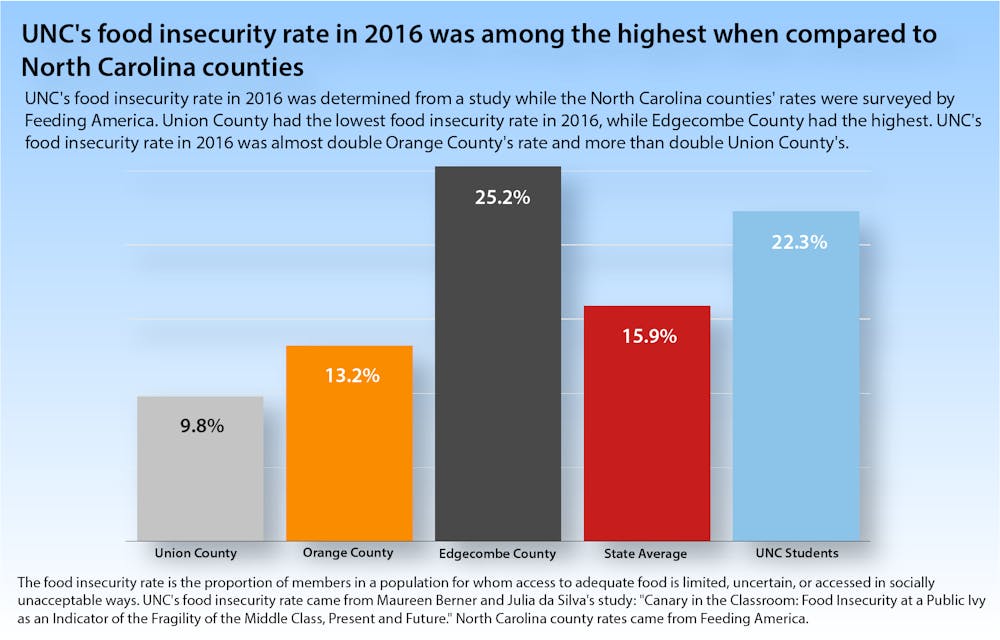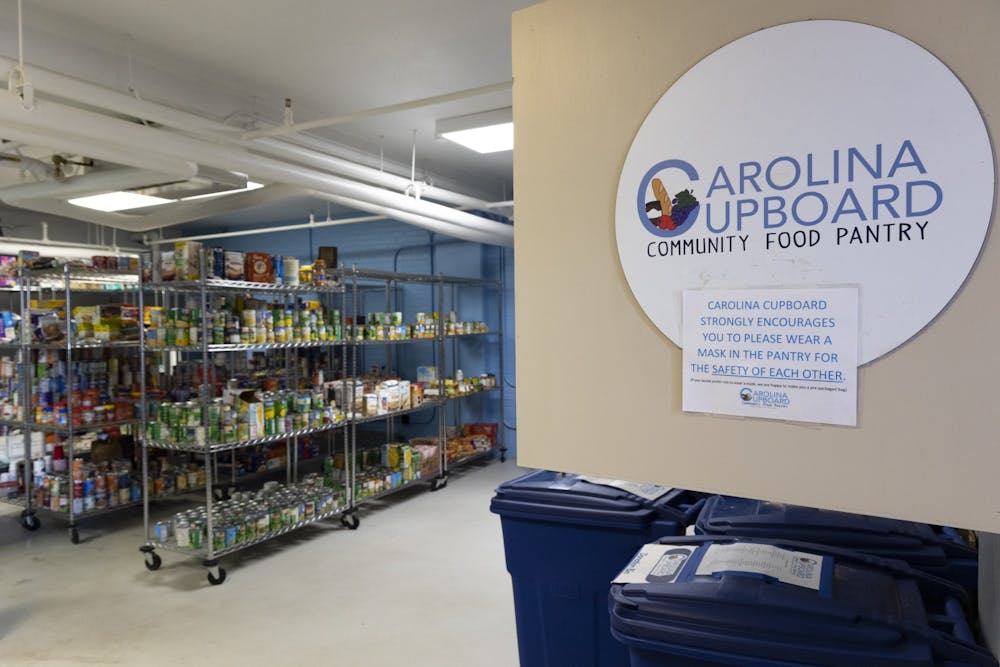“There is a cost of food insecurity, for those who are food insecure," she said. "We have the data that they have lower levels of self-reported academic progress. This is affecting their education and their educational outcome.”
Riley Harper, a UNC sophomore and assistant vice president of Carolina Cupboard, said students located on South Campus also have to face the barrier of being in a food desert, which is an area where nutritious and affordable food is not always available.
“It means that they're taking 12+ credit hours — probably between 12 and 18 — on top of probably being at a higher probability of being a first-generation college student who's navigating college without assistance from parents or funding from parents,” he said. “They're also having to worry about 'how I am going to eat breakfast, lunch and dinner and complete my homework, and probably complete one or more jobs outside of school.'”
Along with shelf-stable canned goods, Carolina Cupboard can also provide students with fresh produce and hygiene products.
Another large focus of the pantry is minimizing food stigma. Matthews described this social stigma as people receiving judgment for needing help.
“We want to combat that social stigma of facing food insecurity because, no matter what, we're all humans, we all deserve food,” Matthews said. “It shouldn't be a problem to be (food insecure) and you shouldn’t be outcasted by society in any way if you need additional support to make your ends meet.”
Harper described reasons why students are potentially embarrassed to receive the aid that they need.
“Put yourself in the shoes of someone that's food insecure," Harper said. "And one of your really good friends is sitting outside the pantry studying. Are you gonna walk past her and go grab food because you can't afford your own? Maybe you would. Maybe you would not feel ashamed to do that, but there's definitely a lot of people that would, or at least be embarrassed and I know that maybe I would — and you shouldn't be.”
The location of Carolina Cupboard being in the basement of Avery Residence Hall and accessed through a back door, allows students to grab groceries unnoticed, Matthews said. She also said that they are willing to work with students to protect their privacy, through efforts such as one-on-one deliveries outside of the pantry.
Berner said pantries only serve to help the immediate need of the community — not the long-term problem. The reason people are food insecure is due to individuals falling through the holes of government social security nets, she said.
“It's just simple financial instability, insecurity is an indicator of the underlying fragility of people's economic situation,” she said. “In other words, we looked at food insecurity, but really what we're seeing is just a marker for not having enough to meet all of their basic daily needs.”
For students facing food insecurity, more on-campus resources include CJ’s Cupboard — located in UNC Gillings School of Global Public Health — and a mutual-aid pantry located in the Campus Y. Berner also urged students to seek out financial aid from the University and see if they qualify for federal programs, such as the Supplemental Nutrition Assistance Program.
To get the day's news and headlines in your inbox each morning, sign up for our email newsletters.
@dailytarheel
university@dailytarheel.com




